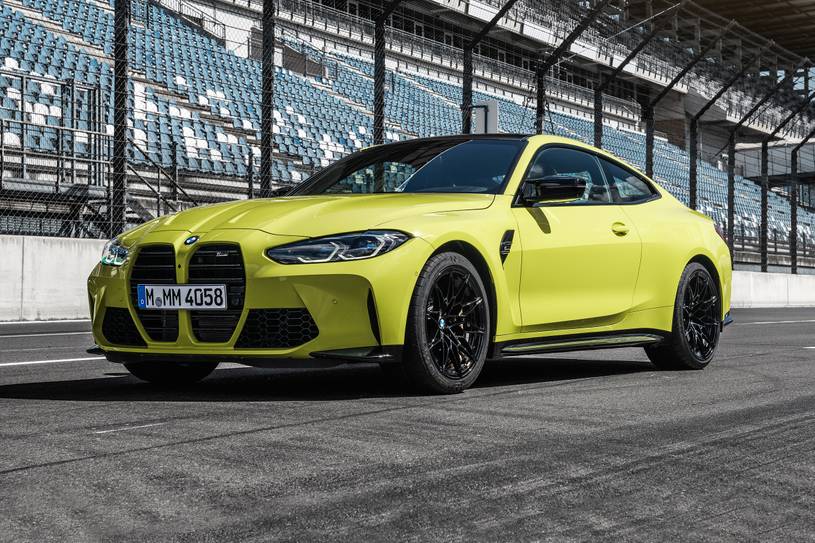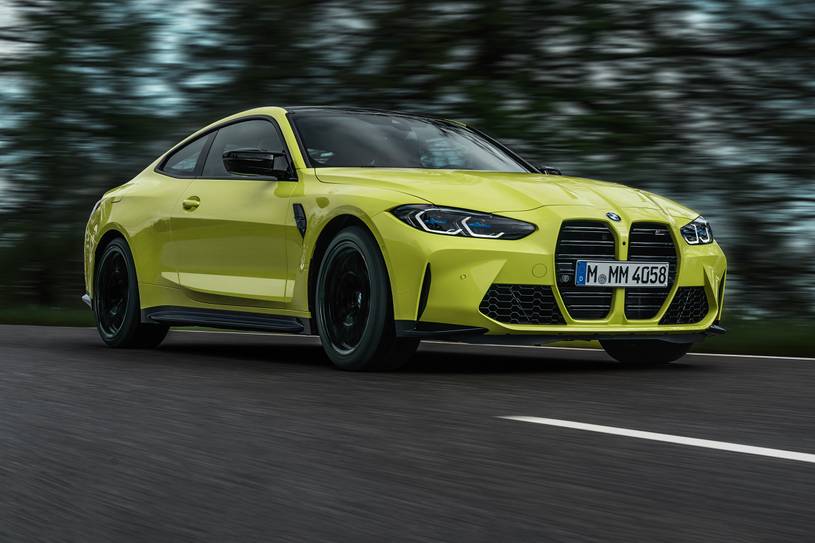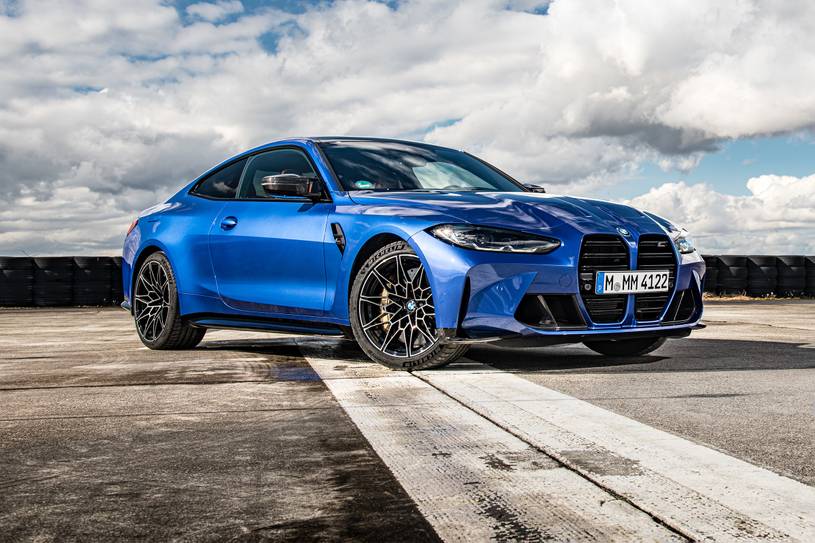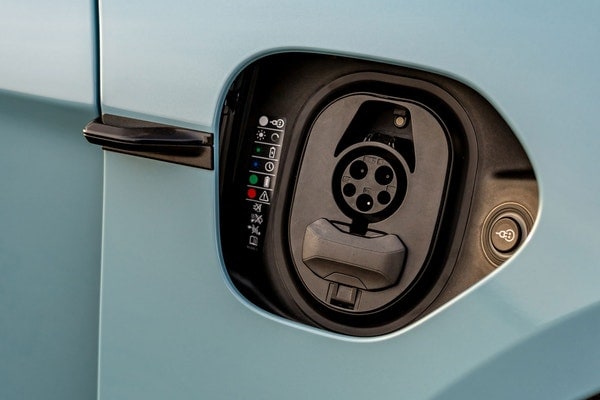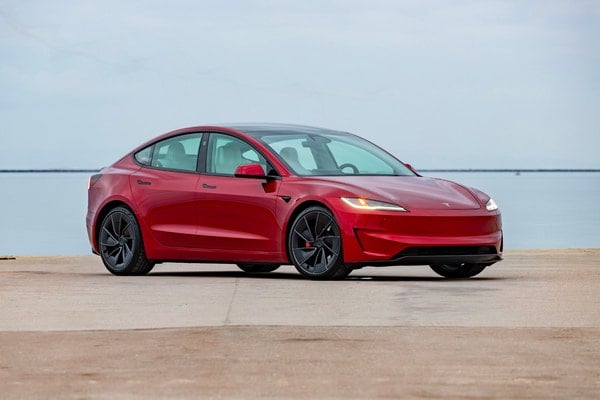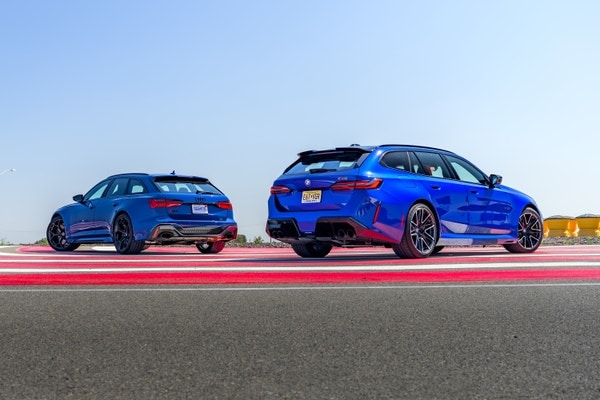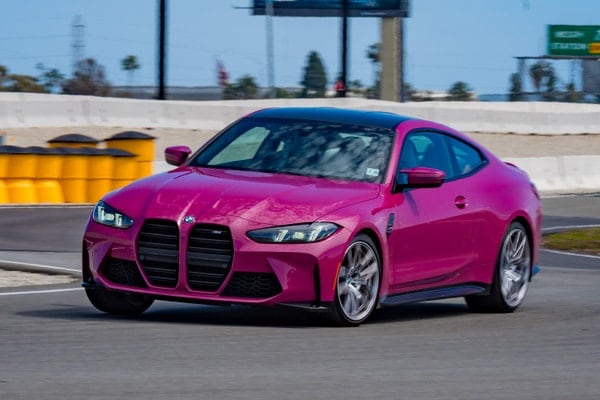The M4 drives just like the M3, and BMW says there are no steering or handling differences between them. But perhaps it has to be seen in a different context. The M3 is one of the greatest driver's sedans, no question. But some of the M4's potential buyers could choose a two-seater. And suddenly the M4 has to compete with true sports machines, notably the Corvette or Porsche Cayman S. Viewed that way, it's up against some sublime driver's cars.
Still, whatever its rivals, you can never accuse the M4 of lacking performance. Our test car is a rear-wheel-drive M4 Competition. It might be just a 3.0-liter, but the two turbos and high-pressure direct injection give it vast midrange muscle. In third and fourth gears, it rockets ahead. Indeed, it's deceptively quick, because the noises don't change much as you acquire speed, only the dizzying numbers on the speedometer. It serves up a smooth straight-six engine sizzle, and revs out to the 7,200 rpm redline with unabated zeal. But there are V8 and flat-six rivals with more raw charisma.
All its handling moves are well-damped, beautifully communicated and tremendously precise, with no slack or lost motion. Steering is sharp, and resistant to understeer. Turn it into a smooth curve and it's super accurate. In the rear-wheel-drive M4, you have to devote most of your attention to the feel from the rear tires, sensing how they cope with the engine's force. You feel the tail just hinting at an outward movement, and then the electronically controlled differential closes up and finds traction, albeit not as much as in a mid-engine car. The M4, unlike the old model, surrenders its grip progressively, which adds to your confidence in it and the fun factor.
Perhaps the only vice appears on bumpy roads, when the steering gets disturbed, nudging left and right instead of tracking straight and true. So you have to grip the wheel firmly.
